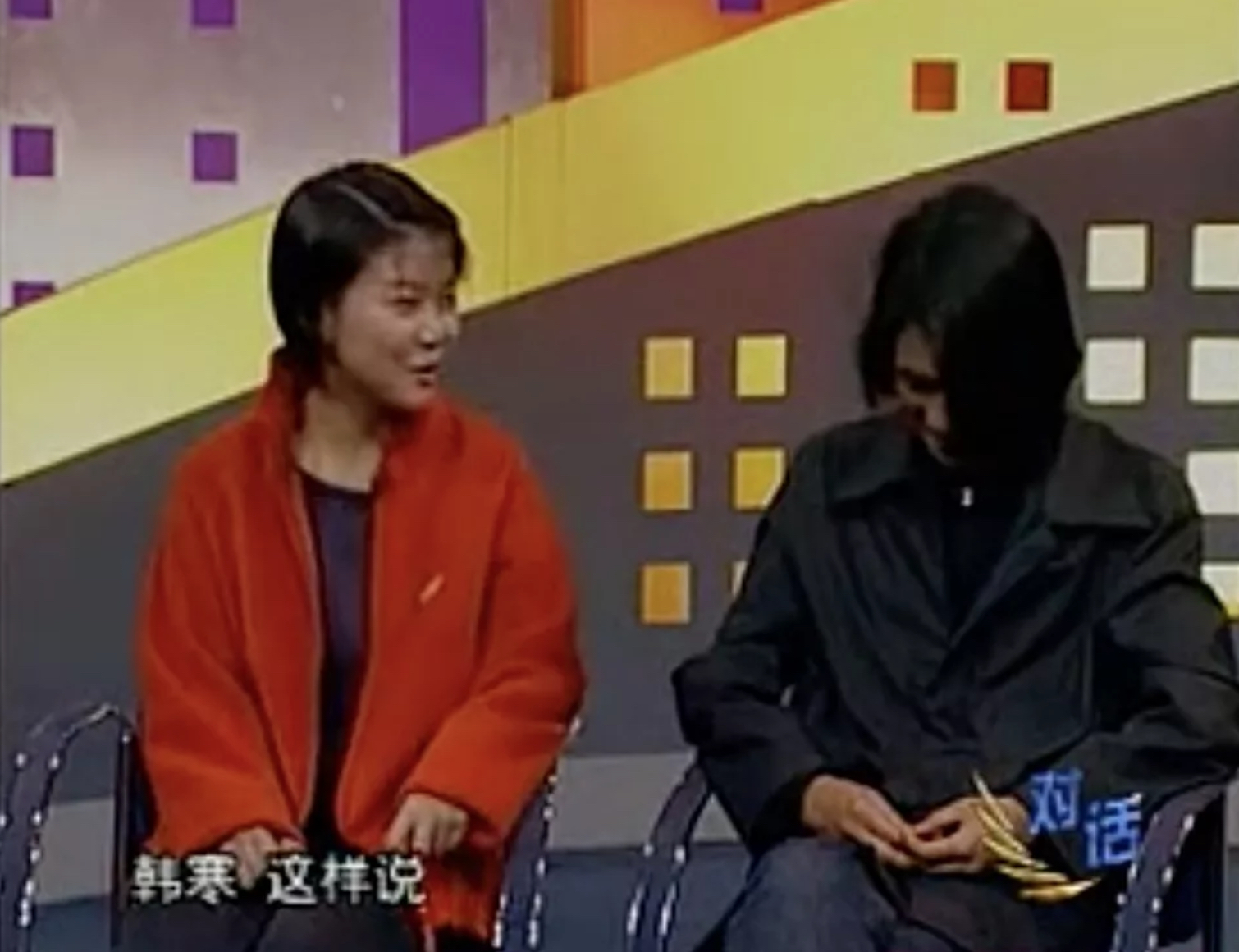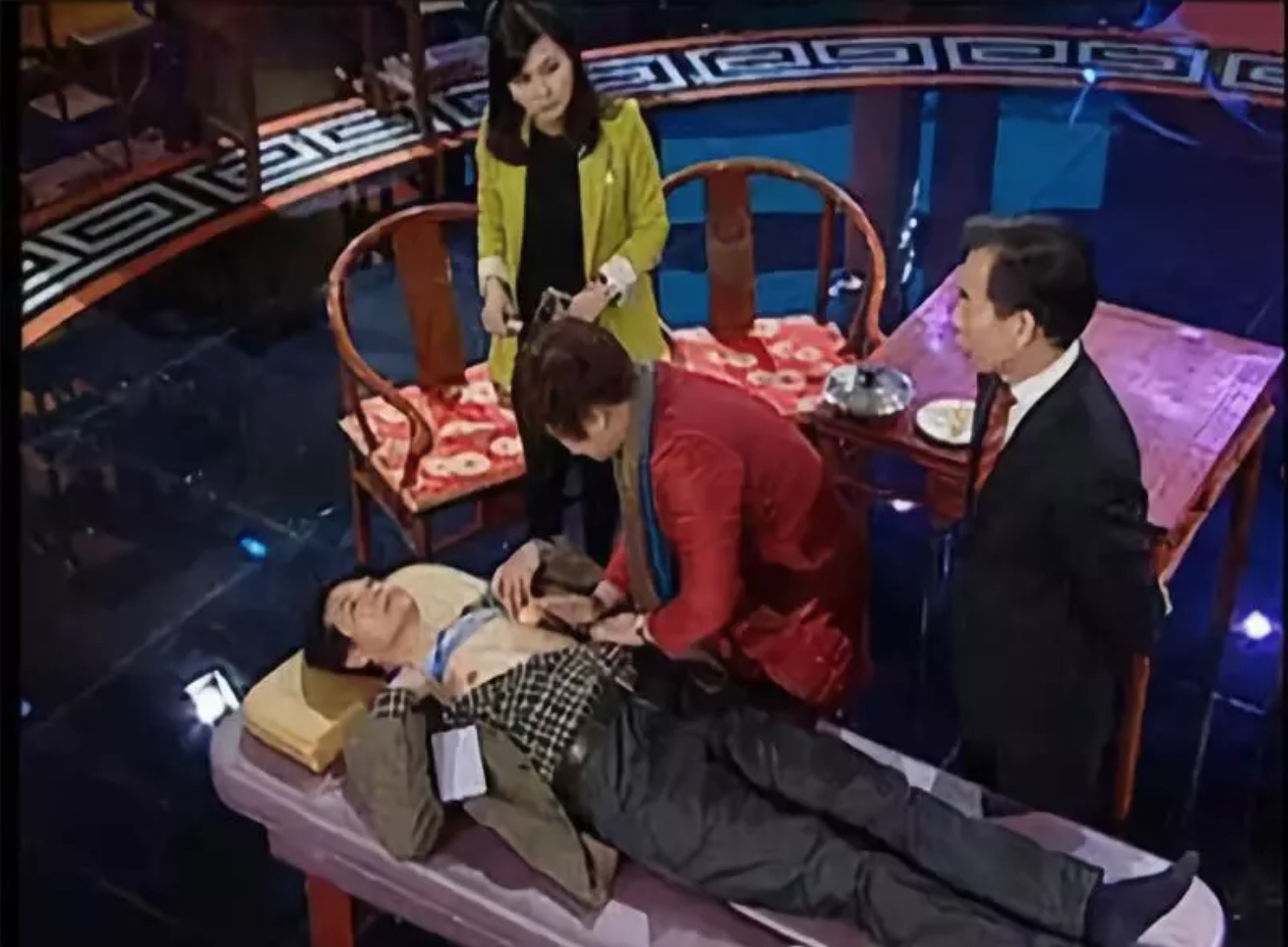Chinese Corner: The public shaming of Han Han
Chinese Corner: The public shaming of Han Han

The public shaming of Han Han
18年前韩寒的光明顶之战
18 years ago, Han Han’s battle on Bright Peak
By Mǎngshān Lào Tiětóu 莽山烙铁头
October 23, 2018
18 years ago, when Hán Hán 韩寒, then an 18-year-old high school dropout, walked into a studio for CCTV’s talk show Dialogue, he likely had no idea what’s going to happen. He had just published his first novel Triple Door (三重门 sān chóng mén), which quickly became a massive hit among teen readers, who worshipped him as an unconventionally cool peer who had the courage to stand up against the country’s strict education system. “All-rounded development only results in all-rounded mediocre,” Han Han once said when asked if he regretted leaving school, inciting a national debate over the role of education in a young person’s success.
Lasting for almost an hour, the show was, in its essence, an elaborate attack to destroy Han Han’s ego. It started with the host introducing the young writer as “a moth, a caterpillar or a phoenix transformed from a domestic chicken.” Sitting with two educational experts, Han Han was scolded for “having a negative impact on society.” Then there was a round of roasting by the audience, which in some ways resembled a public stoning. Then, young woman named Huáng Sīlù 黄思路, once crowned by media as “the best student in China,” came on stage to play piano.
Han Han was completely owned. Looking less like a popular author of a best-selling book than an embarrassed teen whose confidence is completely crushed, Han Han submitted himself to the host’s final question — what did he think of ZHuang’s piano performance? “She’s a leader,” Han Han said, hanging his head in shame.
Author Mǎngshān Lào Tiětóu 莽山烙铁头 revisits this old episode, and argues that the show was never intended to form a constructive dialogue regarding Han Han’s success. Instead, it wa a biased public shaming of an idiosyncratic talent, who was punished for not complying with the rules set by close-minded adults.


Will ethnic minority medicine have its moment?
不服中医?还有蒙藏维苗医等着你
Think traditional Chinese medicine is a scam? Wait for Mongolian, Tibetan, Uyghur, and Miao ethnic minority medicine
By Jīn Sān 金三
October 23, 2018
For anyone who is alarmed by the Chinese government’s aggressive campaign to promote traditional Chinese medicine (TCM) as some kind of cultural heritage that’s worth preserving in its traditional form rather than subjecting to the scientific method, something more horrendous is on the horizon.
In August, in a document released by 13 high-level government agencies including the National Development and Reform Commission and the Ministry of Education, Chinese authorities called for a stronger approach to developing traditional remedies and medicinal practices of ethnic minority groups, mainly by constructing more hospitals specialized in this area and enhancing the use of such medicine in medical and healthcare services. “By 2030, international cooperation between ethnic minority and Western medicines should be more extensive,” reads the announcement.
But the concept of ethnic minority medicine can be a hard sell — there are many folk beliefs that sound completely absurd to the scientific ear. For example, some traditional Mongolian doctors claim that placing raw animal organs on people’s bodies’ can “erase” the sickness inside. Among Yao people, a common belief is that rolling boiled eggs on children can treat diarrhea.


Sino-Japanese relations in 1984
北京的宾馆几乎腾空,才住下请来的这批日本年轻人
They emptied almost all hotels in Beijing to accommodate these young Japanese
By Will
October 19, 2018
Japanese Prime Minister Shinzo Abe has just left China, after the first formal visit by a Japanese leader to the country in seven years. As widely noted in media, the trip is expected to yield a host of deals and agreements after many years of hostility between the two countries.
But the positive signs at a diplomatic level doesn’t necessarily guarantee that people in China and Japan will start to like each other. As a recent survey shows, more than 80 percent of Japanese people hold negative views of China, citing a range of reasons such as territorial issues.
To turn around the tides of public opinion, author Will suggests that leaders of the two countries can pull inspiration from the Japan-China youth gathering in 1984, when a group of more than 3,000 Japanese delegates spent an eventful two weeks in Beijing. As a result, after many years, about one third of them became government officials who went on to promote Sino-Japanese friendship.

Below are some other articles that piqued my interest this week:
- 批量生产的中国专利,大多是垃圾 Most of Chinese patents are trash
- 我玩了《中国式家长》N次,发现考上北大的真正秘诀 I played ‘Chinese parents’ several tiems and found the secret of getting into Peking University
A video game that allows you the live the life of a typical Chinese children, coursing through a set of circumstances regarding education, love, and future. - 女频小说的世界:两亿女性读者的幻想与狂欢 The world of women-centered novels: The fantasy and joy of 200 million female readers
“Cinderella-like stories are losing their appeal.” A new generation of female readers prefer to see independent and strong female protagonists. - 重庆:一座“网红城市”的诞生 Chongqing: The birth of an internet-famous city
An example of how to utilize the power of social media to boost local tourism. - 鹿晗的垮掉 The fall of Lu Han
The moral of the story: Male pop stars in China should always remain tight-lipped about their dating status.






